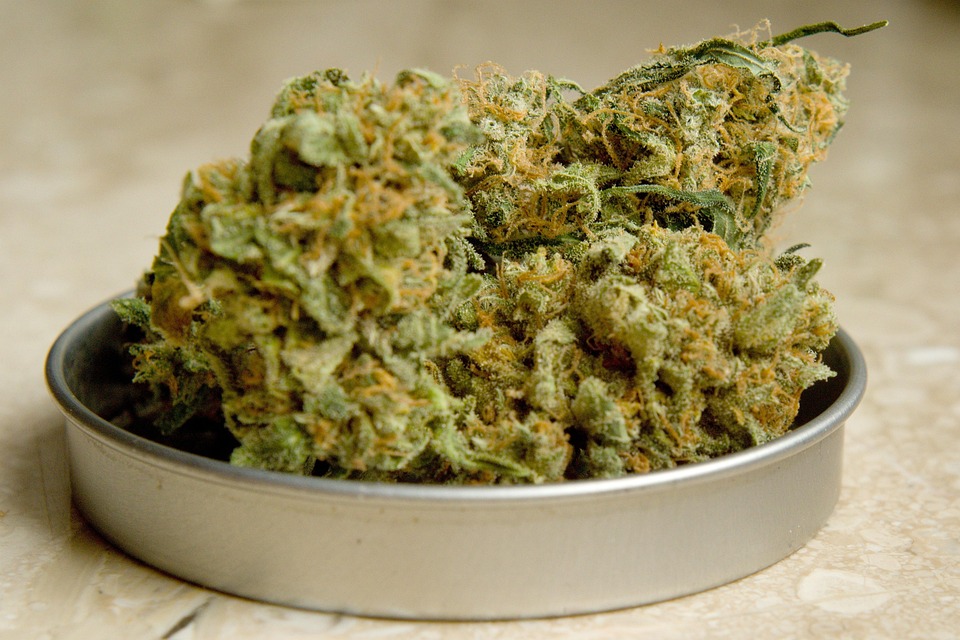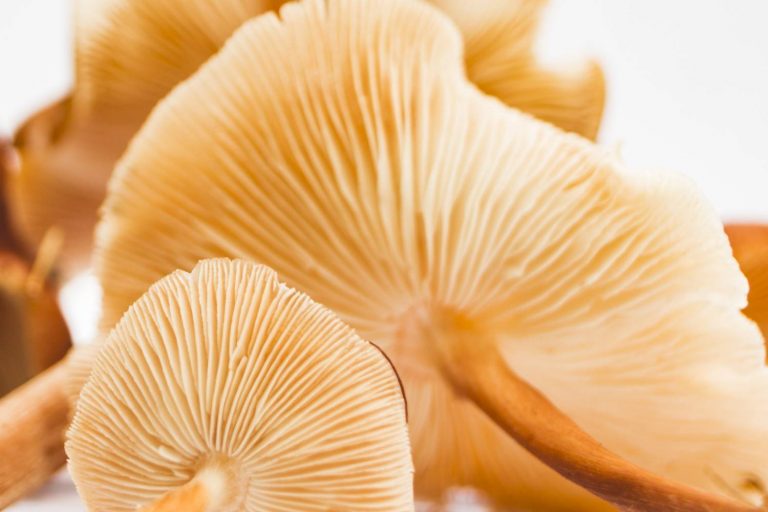Did you know that nearly 70% of adults in the U.S. say they experience stress or anxiety daily? It’s a staggering figure, and let’s be real—sometimes the hustle and bustle of life can feel overwhelming. Whether it’s work pressure, family responsibilities, or just the constant barrage of notifications on your phone, finding a moment of peace can seem impossible. While there are plenty of modern solutions available, many people are turning back to nature, seeking solace in herbal remedies that have been used for centuries. Here, we’ll dive into five herbal remedies that can help calm your mind and boost relaxation.
Contents
1. Chamomile: The Gentle Giant of Relaxation
What It Is
Chamomile is probably the most well-known herb for relaxation. Often consumed as a tea, chamomile has a soothing effect that many people swear by. Its active ingredient, apigenin, binds to certain receptors in your brain, promoting a sense of calm and helping you wind down after a hectic day.
Pros and Cons
Pros:
- Easy to Use: Chamomile tea is widely available and easy to prepare.
- Sleep Aid: Studies have shown that chamomile can improve sleep quality. A study published in the Journal of Advanced Nursing found that postpartum women who drank chamomile tea reported better sleep quality (Hale et al., 2016).
Cons:
- Allergic Reactions: Some people may be allergic to chamomile, especially those allergic to plants in the daisy family.
- Blood Thinning: Chamomile can interact with blood-thinning medications, so consult a healthcare provider if you’re on such medications.
How to Use
Just steep one to two teaspoons of dried chamomile flowers in hot water for about five minutes and enjoy. For an extra boost, add a little honey or lemon.
2. Lavender: A Fragrant Escape
What It Is
Lavender is not just a pretty flower; it’s a powerhouse when it comes to calming the mind. The scent of lavender has been shown to reduce anxiety and stress levels. Its essential oil is often used in aromatherapy, making it a versatile option for relaxation.
Pros and Cons
Pros:
- Versatile: You can use lavender in various forms—essential oils, dried flowers, or even in culinary dishes.
- Research-Backed: A study published in the Journal of Alternative and Complementary Medicine found that inhaling lavender essential oil significantly reduced anxiety levels in patients undergoing surgery (Koulivand et al., 2013).
Cons:
- Skin Sensitivity: Some people may experience skin irritation when using lavender oil. Always do a patch test before applying it to larger areas.
- Not for Everyone: Pregnant women should consult a healthcare provider before using lavender, as its effects on pregnancy are not fully understood.
How to Use
You can diffuse lavender essential oil in your home, add a few drops to a warm bath, or simply place dried lavender sachets under your pillow for a calming effect as you sleep.
3. Ashwagandha: The Stress Buster
What It Is
Ashwagandha, an adaptogenic herb from Ayurvedic medicine, has gained popularity for its ability to help the body adapt to stress. This herb has been shown to lower cortisol levels, which is often referred to as the stress hormone.
Pros and Cons
Pros:
- Holistic Benefits: Besides reducing stress, ashwagandha may help improve memory and cognitive function. A study in the Journal of Dietary Supplements indicated that it significantly reduced stress and anxiety in participants (Chandrasekhar et al., 2012).
- Multiple Forms: Available in capsules, powders, and teas, ashwagandha is easy to incorporate into your routine.
Cons:
- Digestive Issues: Some people may experience gastrointestinal discomfort, especially when taken in high doses.
- Not for Everyone: Pregnant or breastfeeding women and those with autoimmune diseases should consult a doctor before use.
How to Use
Mix ashwagandha powder into your smoothies, or take it in capsule form as directed on the label.
4. Passionflower: The Calming Flower
What It Is
Passionflower is another herbal remedy that’s been used for centuries to promote relaxation and sleep. It’s known for its calming effects and is often used to treat anxiety and insomnia.
Pros and Cons
Pros:
- Natural Sedative: Passionflower has a history of use as a sedative, and some studies have shown it to be effective in treating anxiety. A study in Phytotherapy Research indicated that it can be as effective as some prescription medications for anxiety (Sarris et al., 2013).
- Low Side Effects: Generally well-tolerated, passionflower has fewer side effects compared to synthetic medications.
Cons:
- Drowsiness: It can cause drowsiness, so it’s best to avoid operating heavy machinery after use.
- Limited Research: While promising, more extensive studies are needed to fully understand its efficacy.
How to Use
You can take passionflower as a tea or in capsule form. If you opt for tea, steep one to two teaspoons of dried passionflower in hot water for about 10 minutes.
5. Valerian Root: The Sleep Supporter
What It Is
Valerian root has been used since ancient times as a natural remedy for insomnia and anxiety. It acts as a sedative and can help improve sleep quality, making it a go-to for those struggling to catch those elusive Zs.
Pros and Cons
Pros:
- Effective Sleep Aid: Numerous studies support valerian’s effectiveness in improving sleep quality. For instance, a review in Sleep Medicine Reviews found that valerian root can significantly improve sleep quality in patients with insomnia (Fernandez-San Martin et al., 2010).
- Non-Habit Forming: Unlike some prescription sleep aids, valerian is not habit-forming.
Cons:
- Timing is Key: It may take several weeks of consistent use for valerian to show its full effects.
- Drowsiness: As with passionflower, valerian can lead to drowsiness, so it’s best taken before bed.
How to Use
Valerian root is available in various forms, including tea, capsules, and tinctures. For tea, steep about two to three grams of dried valerian root in hot water for 10-15 minutes.
FAQs
1. Can I combine these herbal remedies?
Yes, many people find it beneficial to combine herbs like chamomile and lavender or ashwagandha and valerian for enhanced effects. However, it’s wise to consult a healthcare provider before mixing.
2. How long does it take to feel the effects?
Timing can vary. Some people may feel immediate effects from herbs like chamomile or lavender, while others may need to take adaptogens like ashwagandha for several weeks to notice a change.
3. Are there any side effects?
Most herbal remedies are safe when used appropriately. However, some people may experience side effects like gastrointestinal upset or drowsiness. Always start with a small dose to see how your body reacts.
4. Can I use these remedies alongside medications?
It’s crucial to consult your healthcare provider before combining herbal remedies with prescription medications, as there can be interactions.
Conclusion
Finding the right herbal remedy to calm your mind and boost relaxation can be a game-changer in today’s fast-paced world. Whether you choose chamomile for its comforting tea, lavender for its soothing scent, or ashwagandha for its stress-busting properties, nature offers a variety of options to help you find your calm.
Remember, while these herbal remedies can be incredibly effective, they’re not a substitute for professional medical advice. Always consult a healthcare provider before making any significant changes to your health routine.
This journey toward relaxation is personal, and with the right tools, you can reclaim your peace of mind.
References
-
Hale, L., & Tully, L. (2016). The effect of chamomile on sleep quality in postpartum women: A randomized controlled trial. Journal of Advanced Nursing. Retrieved from https://www.ncbi.nlm.nih.gov/pmc/articles/PMC5015343/
-
Koulivand, P. H., Ghadiri, M. K., & Gorji, A. (2013). Lavender and the nervous system. Journal of Alternative and Complementary Medicine, 19(2), 130-135. Retrieved from https://www.liebertpub.com/doi/abs/10.1089/acm.2012.0135
-
Chandrasekhar, K., Kapoor, J., & Anishetty, S. (2012). A randomized double-blind placebo-controlled study of the efficacy and safety of ashwagandha (Withania somnifera) extract in the management of stress and anxiety in adults. Journal of Dietary Supplements, 9(3), 243-254. Retrieved from https://www.tandfonline.com/doi/abs/10.3109/19390211.2013.836054
-
Sarris, J., et al. (2013). Passionflower: A systematic review of its anxiolytic and sedative effects. Phytotherapy Research, 27(9), 1357-1365. Retrieved from https://onlinelibrary.wiley.com/doi/abs/10.1002/ptr.4835
-
Fernandez-San Martin, M. I., et al. (2010). Valerian root for insomnia: A systematic review and meta-analysis. Sleep Medicine Reviews, 14(4), 223-230. Retrieved from https://www.sciencedirect.com/science/article/abs/pii/S1087079209000681
Get Your FREE Natural Health Guide!
Subscribe now and receive our exclusive ebook packed with natural health tips, practical wellness advice, and easy lifestyle changes, delivered straight to your inbox.




